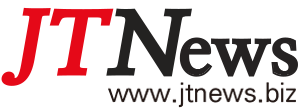Seoul Ranks 15th in Global Cities Index — Excels in Human Capital, Lags in Environment

Seoul ranked 15th overall and 2nd among Asian cities in a global evaluation of 1,000 cities conducted by the UK-based economic research firm Oxford Economics.
The city received top marks in the human capital category but was noted to have weaknesses in environmental factors such as air quality.
According to Oxford Economics on the 28th, New York (USA), London (UK), and Paris (France) took the top three spots in the 2025 Global Cities Index, which comprehensively evaluates structural advantages, opportunities, and challenges of 1,000 cities. Seoul was ranked 15th.
The rankings are based on five categories: economy, human capital, quality of life, environment, and governance, using data from the past year.
Seoul’s position rose sharply, climbing 26 places from 41st last year.
In detail, Seoul ranked 18th in economy, based on factors like GDP and employment. While the city’s industrial foundation is strong, recent economic slowdown and aging demographics served as structural constraints.
In human capital, Seoul achieved an impressive 5th place globally, thanks to top-tier higher education institutions and major corporations.
However, Seoul scored lower in other areas: 129th in quality of life, 514th in environment, and 147th in governance.
High housing costs and insufficient housing supply were cited as major issues affecting the quality of life. The environment category received the lowest rank among all five due to poor air quality and abnormal weather patterns driven by climate change.
In governance, recent political uncertainty negatively impacted Seoul’s score.
Oxford Economics commented that “South Korea has had a stable political history since transitioning to democracy in the late 20th century,” but added, “It is currently facing political turmoil following the impeachment and martial law discussions involving former President Yoon Suk Yeol. How this political crisis is resolved will determine the future governance ranking and could affect other categories as well.”
| Rank | City | COUNTRY |
| 1 | New York | USA |
| 2 | London | USA |
| 3 | Paris | FRANCE |
| 4 | 새너제이 | USA |
| 5 | Seattle | USA |
| 6 | Melbourne | AUSTRAILIA |
| 7 | Sydney | AUSTRAILIA |
| 8 | Boston | USA |
| 9 | Tokyo | JAPAN |
| 10 | San Fransico | USA |
| 11 | Los Angeles | USA |
| 12 | Washington DC | USA |
| 13 | Dublin | IRELAND |
| 14 | Stockholm | SWEDEN |
| 15 | Seoul | REPUBLIC OF KOREA |
| 16 | Zurich | SWISS |
| 17 | Oslo | NORWAY |
| 18 | Copenhagen | DENMARK |
| 19 | Dallas | USA |
| 20 | Toronto | CANADA |
| 21 | Singapore | SINGAPORE |
| 22 | Munich | GERMANY |
| 23 | Brisbane | AUSTRAILIA |
| 24 | Chicago | USA |
| 25 | Geneva | SWISS |
Among Asian cities, Tokyo, Japan, ranked highest at 9th place. Hong Kong was 72nd, while Shenzhen and Beijing in China ranked 134th and 152nd, respectively.
Other Korean cities included Busan (281st), Jeonju (314th), Daegu (321st), Gwangju (328th), Cheongju (332nd), and Daejeon (341st).
Eight of the top 10 cities in the Global Cities Index remained unchanged from last year, with New York and London maintaining the top positions for two consecutive years.
Seoul consistently ranks in the 10th–20th range in various global urban indices. In March, it placed 10th out of 133 cities in the Global Financial Centres Index (GFCI), which assesses financial competitiveness. In the Top 100 Cities ranking released by Euromonitor International based on travel-related data, Seoul was ranked 12th at the end of last year.
[Editor Junbeom]







